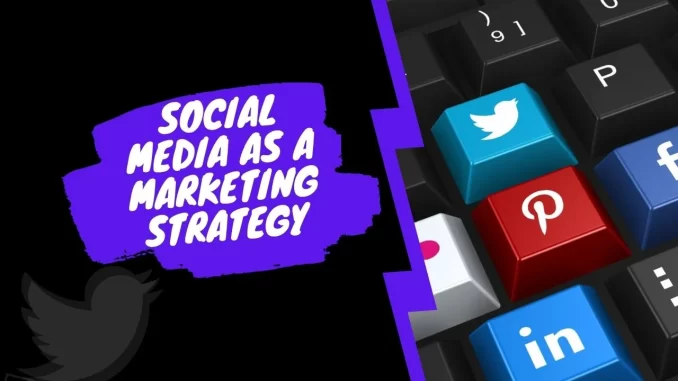Being self-employed means having to source health insurance on your own. This can be incredibly challenging for those who recently left a traditional 9-5 job.

However, purchasing a self-employed insurance plan is not as daunting as you think. You can find various options and tips to help you make the right choice. This article contains some of these tips.
Understand Your Employment Classification
Most people do not realize this, but there is a difference between being self-employed and being a small business employer. This is because all self-employed individuals are considered business owners, but some small business owners are not considered self-employed.
Knowing the difference between classifications matters because they are various tax implications as well as different options when purchasing a health insurance plan.
The IRS does not regard anyone with employees a self-employed individual. This means that if you issue a W-2 to anyone, then you are a small business employer.
Unfortunately, such employers cannot utilize the Health Insurance Marketplace to purchase self-employed plans.
Nevertheless, as a small business employer, you may be able to take advantage of the Small Business Health Options Program (SHOP). This program is available for businesses with up to 50 employees. Using this program, you can purchase coverage for yourself and your employees at the lowest cost possible.
Explore All Your Options
The most popular place to search for self-employed insurance options is the Health Insurance Marketplace. However, that is not your only option. There are numerous platforms where you can find coverage, research quotes, and purchase a plan.
Keep in mind that it is important to explore all insurance plans to ensure you purchase one that fits your needs and budget. Here are some platforms that offer insurance.
Insurance Companies
Firstly, you can buy a plan directly from an insurance company. This is a valid option, especially when you cannot receive savings discounts from the Health Insurance Marketplace. Some insurance companies even offer you options and their prices, so you can compare and decide what plan works for you.
The National Association for Self-Employed (NASE)
While not as popular as other options, this organization offers health insurance options to all members. By subscribing to a monthly or annual membership plan, you can purchase health insurance plans that are typically set up for large organizations.
Short-term Insurance Providers
This option is not available to everyone, but if you qualify, you are offered short terms insurance plans that cover you for a certain amount of time.
These plans generally last for 12 months. However, some states allow the renewal of plans for 36 months. Keep in mind that these plans do not have enrollment periods.
Consider HSAs
A Health Saving Account (HSA) is a savings account with tax benefits that come with certain eligible health insurance plans. This savings account is available to everyone and might be a fantastic idea for self-employed individuals. For one, HSA-compatible plans come with lower monthly premiums and higher deducible compared to other insurance plans.
Furthermore, you can use this plan to save a part of your pre-tax income while earning tax-free interest. You can, in turn, use these funds to pay for certain medical expenditures, such as deductibles and co-payments.
The best part is that any money you do not use is accumulated tax-free over the years.
This option is great for anyone in the workforce because it provides a way for them to save for future healthcare costs tax-free. So, if you are looking for a way to improve your personal finances, an HSA is a fantastic way to go.
Look for a Rate Guarantee
After purchasing health insurance from a private company, this company may decide to increase its monthly premium over time. To avoid this and get stable rates, you should contemplate protecting yourself by looking for a plan with a rate guarantee.
With a rate guarantee, you lock in your rates at a fixed amount that you and the company decide on before the policy commences.
You can enlist the help of a licensed health insurance agent to help you figure out which companies offer this rate guarantee. Keep in mind that lock-in durations vary based on the company.
Some insurance providers only lock your rates for the first year of your plan. With other providers, you may be able to receive a longer lock-in period, but you will have to pay an additional monthly fee.
Paying an extra fee for the extended lock-in period may be a good idea. However, be sure to calculate how much this fee would cost and if it is more affordable than a rate increase. If it is not, then you should not be paying the extra fee.
Learn About COBRA Coverage
If you have a standard 9-5 job and are looking to be self-employed or start a new business, find out if you qualify for the Consolidated Omnibus Budget Reconciliation Act (COBRA) health coverage. You can get this health coverage with the help of your previous employer.
According to the law, your employer is obligated to elongate your coverage at the rate the company purchases it. If your employer lets you go or you resign, the coverage length of this plan can reach up to 18 months.
Note that this coverage is not a permanent solution. A COBRA premium can be quite pricey compared to other options, even with the 65% subsidy the federal government offers. Hence, consider going for another plan even before the 18 months elapses.
You can decide to stay if you have a pre-existing health condition that might make it challenging for you to qualify for another coverage. However, if you do not have a medical condition, then think about finding more affordable and convenient alternatives.
That said, you can always find a plan that is suitable for your existing medical condition. These insurance plans typically cover high-risk individuals, and if you are a small business employer, you might find a plan that covers employees with the same issues.
Trending Insurance Issues
- 7 Rider Benefits to Add to Your Life Insurance Plan
- Reasons Why Doctors Need Own Occupation Disability Insurance
- Budget-Friendly Insurance Options: Protecting What Matters Most
- Does Life Insurance Cover Suicide?
- Artificial Intelligence and Insurance: How AI is transforming the insurance industry
- Climate Change and Insurance: Rising Risks and Evolving Coverage
- Cyber Insurance: Types, Benefits, Risks, & Choosing the Right Policy
- Pandemic Insurance: Protecting Your Business and Personal Assets in a Post-COVID World
- Sustainability and Insurance: promoting sustainability practices and mitigating environmental risks
- What are the Features of the Best Term Plan Insurance in India?
- What To Expect From an Insurance Transcription Service
Conclusion
Starting a self-employed journey leads to many questions, one of which is discovering how to get health insurance.
Luckily, the process is quite straightforward. All you need are a few tips to steer you in the right direction. Using this article, you now have all you need to make an informed decision.









